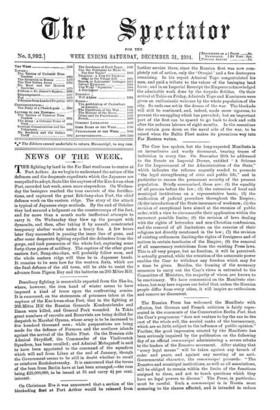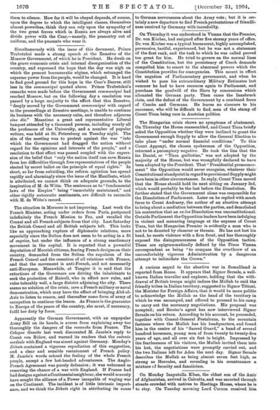The Russian Press has welcomed the Manifesto with effusion, but
German and French criticism is fairly repre- sented in the comments of the Conservative Berlin Post, that the Czar's programme "does not venture to lay the axe to the root of the whole evil, the serried ranks of the bureaucracy, which are so little subject to the influence of public opinion." Further, the good impression created by the Manifesto has been seriously impaired by the publication on the following day of an official communiqu4 administering a severe rebuke to the leaders of the Zemstvo movement. After stating that "every legal means" will be taken against any breach of order and peace, and against any meeting of an anti- Governmental character, the communiqu4 proceeds : "The Zemstvo and municipal institutions, as well as all associations, will be obliged to remain within the limits of the functions assigned to them, and not to touch questions which they have no legal powers to discuss." The Press, in particular, must be careful. Such a communiqw5 is in Russia most menacing to the classes affected, and is intended to reduce
them to silence. How far it will be obeyed depends, of course, upon the degree to which the intelligent classes, themselves almost powerless, think they can rely upon the sympathy of the two great forces which in Russia are always alive and divide power with the Czar,—namely, the peasantry out of uniform, and the peasants who wear it.



































